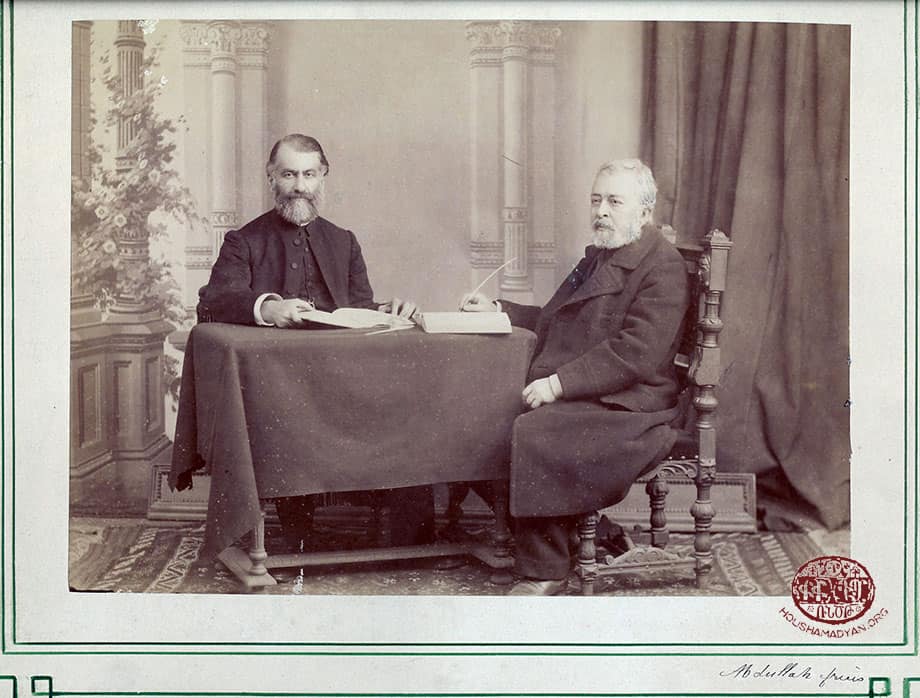
According to the brief biography on the website of the Armenian Eastern Prelacy, which is included below, Madatia Karakashian, who was born in 1818 in Istanbul as Anton Berberian, is considered as a pioneer of Armenian critical historiography. He stood out with his rejection of historiography based on popular legends. It is expressed that Karakashian left an imprint on Armenian scholarship during the nineteenth century. Armenian historiography, Classical Armenian, philosophy, geography and scientific materialism were amongst Karakashian’s interests in his life of scholarship.
Karakashian completed his elementary education in Istanbul. He was sent to Vienna when he was young. During his time in Vienna, he was a member of a monastery, a member of a congregation, a university student and a priest. Moreover, he began an academic career.
After living in Vienna for a long time, he moved to Izmir and gave lessons at a local Mekhitarist school. As a result of him adopting scientific materialism years later, Karakashian renounced his religious vows and moved to Istanbul, where he devoted himself to teaching and scholarship. In 1895, his book titled Critical History of Armenia, which was considered to be his most significant work, was published in Tbilisi. This work became prominent by attempting to present a history of Armenia based on a critical approach to sources and establishing a connection with the political and social relations of Armenia until the fifth century A.D.
As seen from the brief biography, Karakashian was a striking case in respect to exemplifying the Armenian populations’ conditions of living and freedom under Ottoman citizenship and rule. After he freely conducted his religious and scholarly activities abroad, he continued his life in Istanbul and Izmir and became a lecturer as a regular non-Muslim citizen. He gave lessons at the Armenian schools in Izmir and Istanbul. Karakahshian’s life story can constitute an example against those who want to cultivate the seeds of enmity thrown between the Turks and Armenians with regards to true historical background.
BIRTH OF MADATIA KARAKASHIAN (FEBRUARY 11, 1818)**
A pioneer of Armenian critical historiography, Madatia Karakashian was a prolific author who left his imprint on Armenian scholarship during the nineteenth century.
He was born Anton Berberian in Constantinople on February 11, 1818. He received his elementary education in his birthplace, and in 1832 he was sent to the Mekhitarist Monastery in Vienna. After four years of study, he joined the congregation in 1836. He graduated from the University of Vienna and became a celibate priest in 1844.
He started his career in the 1840s, publishing two books, The Art of Rhetoric (1844) and Description of Studies (1845). In the latter, he set his principles for the study of history. He rejected the historiography based on popular legends and highlighted the imperative for a critical approach.
In 1848 he went from Vienna to Smyrna, where he taught at the local Mekhitarist School. Under the influence of German philosopher Ludwig Büchner’s scientific materialism, which he espoused in 1855, a year later Karakashian renounced his religious vows. He moved to Constantinople, where he devoted himself to teaching and scholarship.
Some of his works of grammar had between eight to ten reprints between the 1860s and the 1890s. He would produce several works of philosophy, of which the most important was Principles of Logics (1864), where he condensed his materialist views.
He took a position at the Bible House as editor of translators and simultaneously he taught Classical Armenian, of which he had unparalleled knowledge, at the Armenian schools of the city. In 1887, along with his colleague Hagop Kurken, he published the periodical Jashag vosgeghen tbrootian (Taste of Golden Literature), written entirely in Classical Armenian of the fifth century.
In the 1890s he started teaching Classical Armenian at the newly founded Getronagan School. He also published a collection of geography textbooks. In 1895, he published in Tiflis his most important work, Critical History of Armenia, which was the first attempt to present a history of Armenia based on a critical approach to sources and establishing a connection with the political and social relations of Armenia until the fifth century A.D.
He passed away in Constantinople on November 26, 1903.
* Photograph: Pastor Augustine Gonsdantyan on the left, Madatia Karakashian on the right.
**Madatia Karakashian's brief biography can be found on the Armenian Eastern Prelacy's website: https://armenianprelacy.org/2021/02/11/birth-of-madatia-karakashian-february-11-1818/
© 2009-2025 Center for Eurasian Studies (AVİM) All Rights Reserved
No comments yet.
-
 A PIONEER OF ARMENIAN CRITICAL HISTORIOGRAPHY: MADATIA KARAKASHIAN
A PIONEER OF ARMENIAN CRITICAL HISTORIOGRAPHY: MADATIA KARAKASHIAN
Ahmet Can ÖKTEM 08.03.2021 -
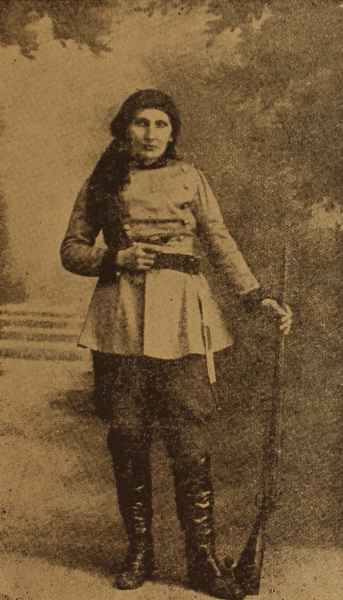 SOSE “MAYRIG” VARTANIAN: A “FIGHTING HEROINE MOTHER” FOR THE RADICAL ARMENIANS
SOSE “MAYRIG” VARTANIAN: A “FIGHTING HEROINE MOTHER” FOR THE RADICAL ARMENIANS
Ahmet Can ÖKTEM 17.02.2021 -
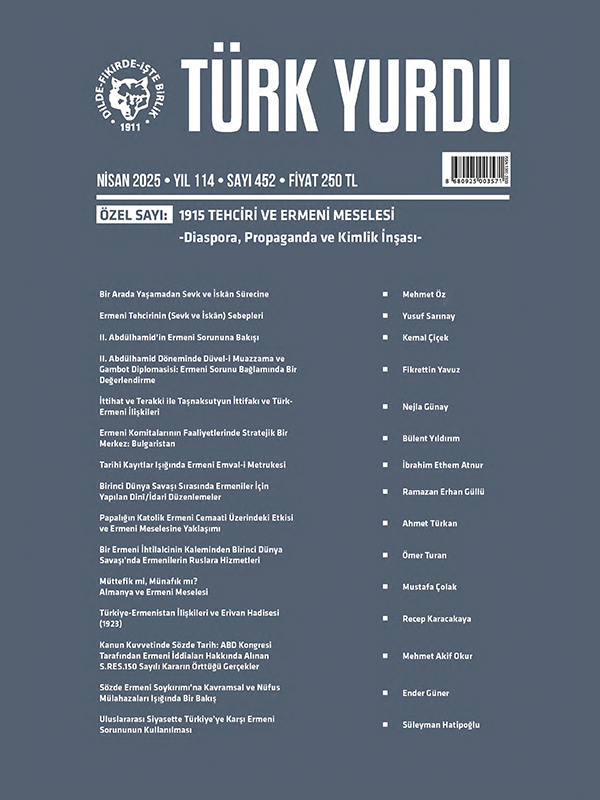 NEW ARTICLE ON SULTAN ABDULHAMID II’S OUTLOOK ON THE ARMENIAN QUESTION
NEW ARTICLE ON SULTAN ABDULHAMID II’S OUTLOOK ON THE ARMENIAN QUESTION
Ahmet Can ÖKTEM 22.05.2025 -
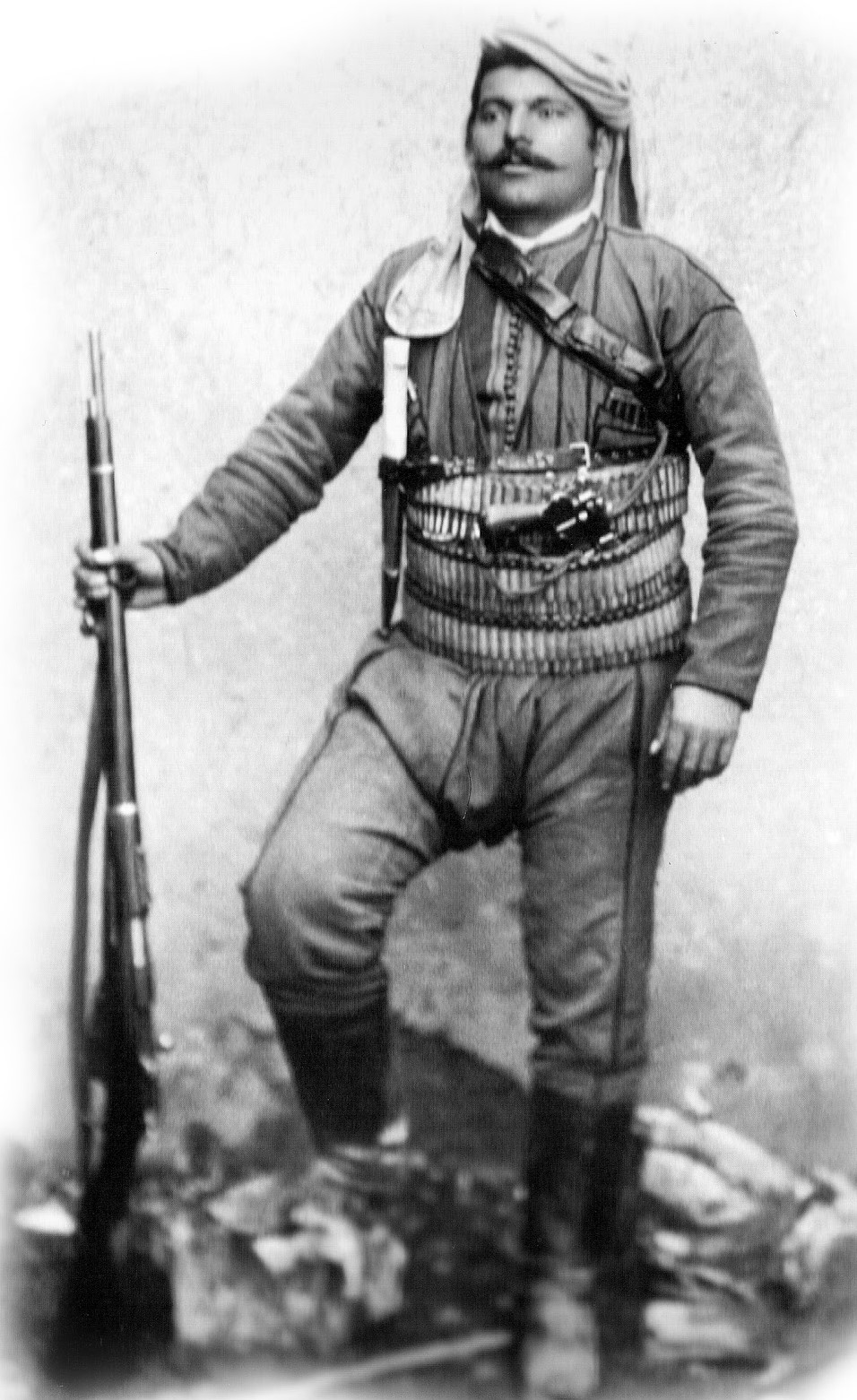 MURAD OF SEBASTIA (SIVAS) - A LESSER KNOWN ARMENIAN FEDAYEE MOSTLY PORTRAYED BY A FEW, HIGHLY QUESTIONABLE SOURCES
MURAD OF SEBASTIA (SIVAS) - A LESSER KNOWN ARMENIAN FEDAYEE MOSTLY PORTRAYED BY A FEW, HIGHLY QUESTIONABLE SOURCES
Ahmet Can ÖKTEM 29.04.2022 -
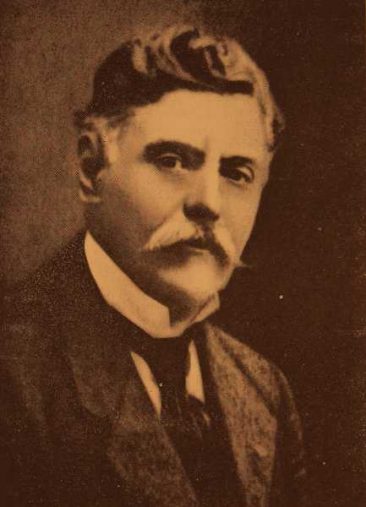 THE ARMENIAN APOSTOLIC CHURCH’S US EASTERN PRELACY NARRATES THE TREASON
THE ARMENIAN APOSTOLIC CHURCH’S US EASTERN PRELACY NARRATES THE TREASON
Ahmet Can ÖKTEM 25.05.2021
-
 THE DECEMBER 2020 LEGISLATIVE ELECTIONS AND THE NEW COALITION GOVERNMENT IN ROMANIA
THE DECEMBER 2020 LEGISLATIVE ELECTIONS AND THE NEW COALITION GOVERNMENT IN ROMANIA
Turgut Kerem TUNCEL 05.01.2021 -
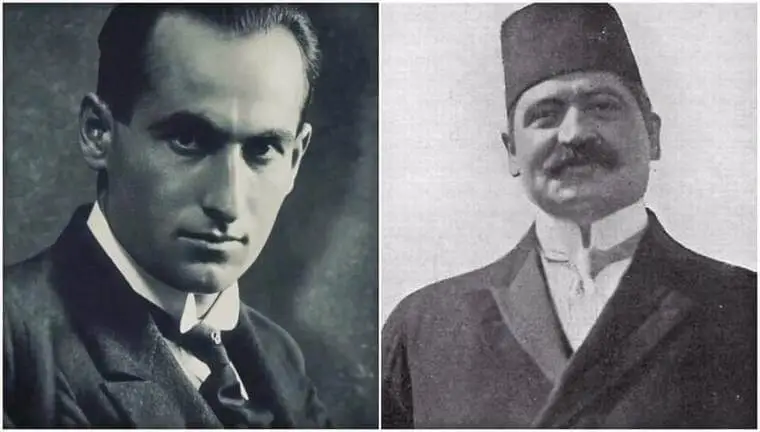 A STATUE OF TERRORIST TEHLIRIAN IN MARSEILLE
A STATUE OF TERRORIST TEHLIRIAN IN MARSEILLE
Hazel ÇAĞAN ELBİR 15.03.2024 -
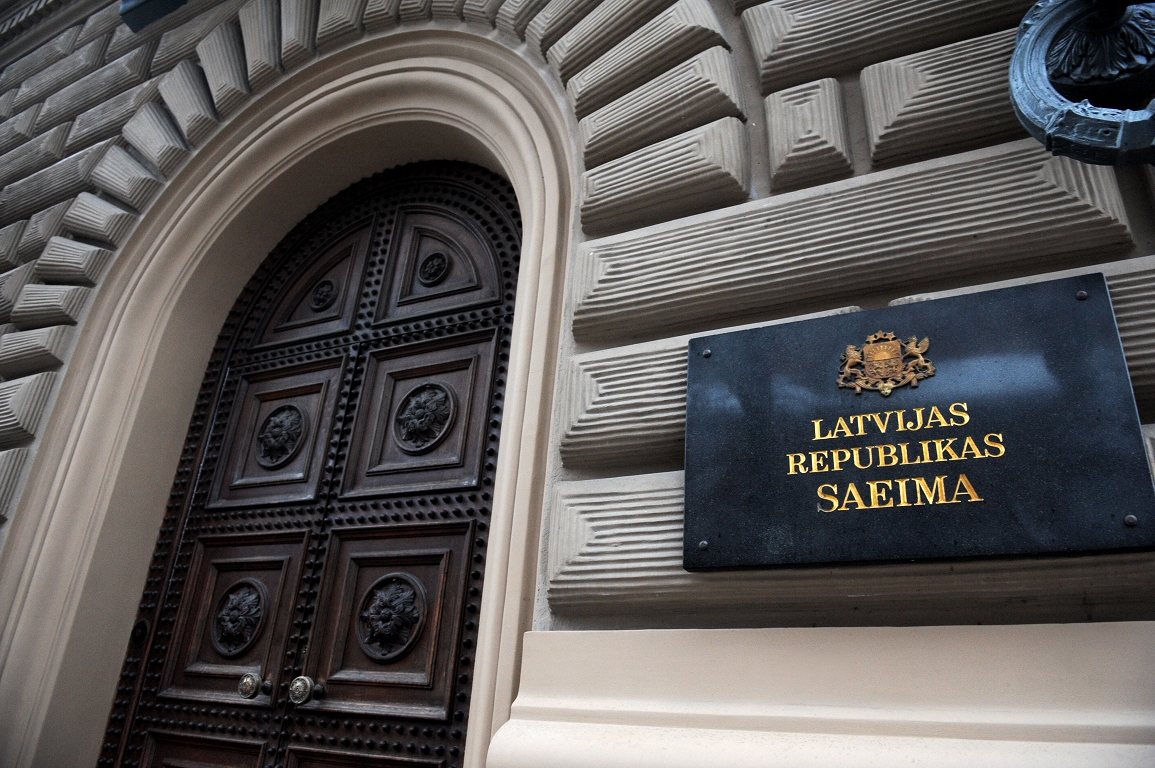 THE NEW KID ON THE BLOCK: LATVIAN PARLIAMENT’S RECOGNITION OF THE ‘ARMENIAN GENOCIDE’
THE NEW KID ON THE BLOCK: LATVIAN PARLIAMENT’S RECOGNITION OF THE ‘ARMENIAN GENOCIDE’
Turgut Kerem TUNCEL 18.05.2021 -
COOPERATION AGREEMENT BETWEEN THE CENTER FOR EURASIAN STUDIES AND THE INSTITUTE OF INTERNATIONAL RELATIONS OF NATIONAL CHENG-CHI UNIVERSITY (NCCU) OF TAIWAN
AVİM 21.10.2013 -
COMMEMORATION OF OUR MARTYR DIPLOMATS
Oya EREN ÖZER 15.02.2012
-
25.01.2016
THE ARMENIAN QUESTION - BASIC KNOWLEDGE AND DOCUMENTATION -
12.06.2024
THE TRUTH WILL OUT -
27.03.2023
RADİKAL ERMENİ UNSURLARCA GERÇEKLEŞTİRİLEN MEZALİMLER VE VANDALİZM -
17.03.2023
PATRIOTISM PERVERTED -
23.02.2023
MEN ARE LIKE THAT -
03.02.2023
BAKÜ-TİFLİS-CEYHAN BORU HATTININ YAŞANAN TARİHİ -
16.12.2022
INTERNATIONAL SCHOLARS ON THE EVENTS OF 1915 -
07.12.2022
FAKE PHOTOS AND THE ARMENIAN PROPAGANDA -
07.12.2022
ERMENİ PROPAGANDASI VE SAHTE RESİMLER -
01.01.2022
A Letter From Japan - Strategically Mum: The Silence of the Armenians -
01.01.2022
Japonya'dan Bir Mektup - Stratejik Suskunluk: Ermenilerin Sessizliği -
03.06.2020
Anastas Mikoyan: Confessions of an Armenian Bolshevik -
08.04.2020
Sovyet Sonrası Ukrayna’da Devlet, Toplum ve Siyaset - Değişen Dinamikler, Dönüşen Kimlikler -
12.06.2018
Ermeni Sorunuyla İlgili İngiliz Belgeleri (1912-1923) - British Documents on Armenian Question (1912-1923) -
02.12.2016
Turkish-Russian Academics: A Historical Study on the Caucasus -
01.07.2016
Gürcistan'daki Müslüman Topluluklar: Azınlık Hakları, Kimlik, Siyaset -
10.03.2016
Armenian Diaspora: Diaspora, State and the Imagination of the Republic of Armenia -
24.01.2016
ERMENİ SORUNU - TEMEL BİLGİ VE BELGELER (2. BASKI)
-
AVİM Conference Hall 24.01.2023
CONFERENCE TITLED “HUNGARY’S PERSPECTIVES ON THE TURKIC WORLD"









